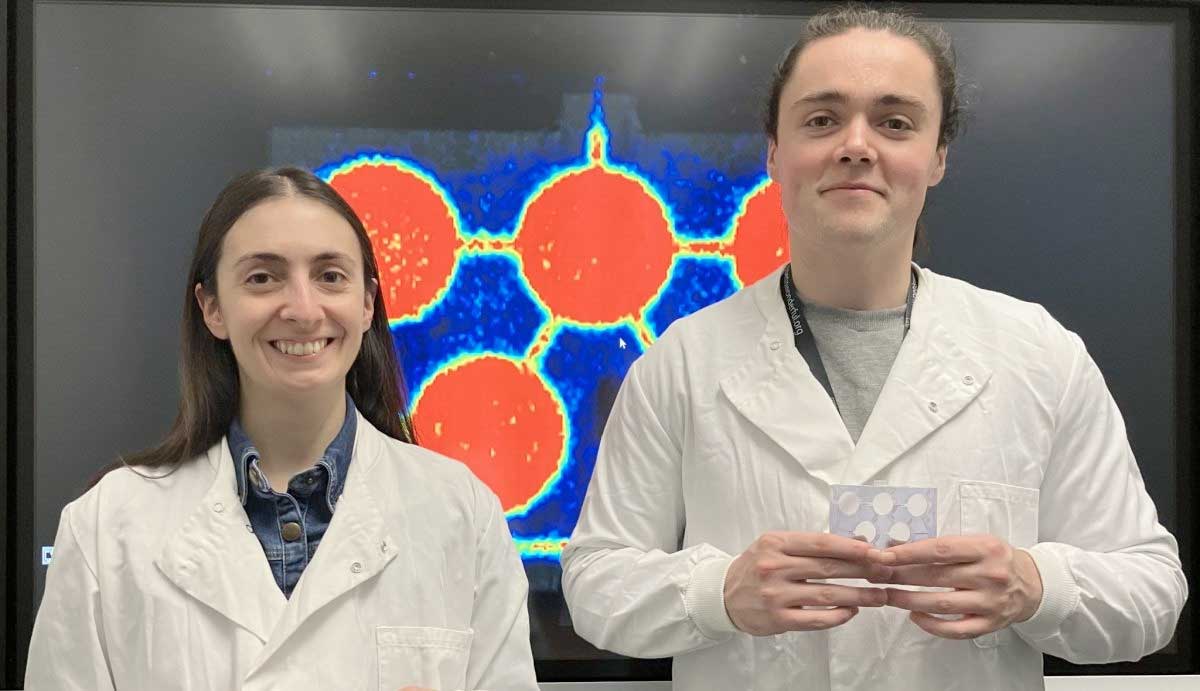A new 3D-printed device being developed at the University of Edinburgh that could eliminate the need for testing the safety of drugs and chemicals on animals has received new funding.
The team behind the innovation recently received £260,000 from the Medical Research Council (MRC) to test the device with sterile materials after its ability to replicate drug perfusion was proven and presented at the Microphysiological Systems World Summit in Germany. The device is currently being 3D printed in collaboration with Edinburgh College of Art. It consists of five compartments containing human cells representing the heart, lungs, kidneys, liver and brain. These are connected by channels that mimic the human circulatory system, through which a small molecule drug is pumped.
Liam Carr, the inventor of the device and a PhD student in in vitro pharmacology, said: “It’s been really exciting to be able to use PET imaging to modify the device and produce even flow through all organ compartments.”
Carr’s supervisor, Dr Adriana Tavares (pictured above left), of the University’s Centre for Cardiovascular Science (CVS), said: “This device shows really strong potential to reduce the large number of animals that are used worldwide for testing drugs and other compounds, particularly in the early stages, where only two per cent of compounds progress through the discovery pipeline.”
The successes of the body-on-chip device so far show a potential that goes beyond drug development – it could also be used to test aerosols, food and household products. There is also the possibility of adding other compartments to represent other organs such as the stomach or skin in conditions that represent both human health and disease.
The device was developed through a PhD studentship co-funded by the National Centre for Replacement, Refinement and Reduction of Animals in Research (NC3Rs) and Unilever, and supported and protected by Edinburgh Innovations, the University’s commercial service.
Dr Natalie Duggett, NC3Rs Early Career Programme Manager, said: “Liam’s body-on-chip device has the potential to replace a significant number of the animals currently used in safety testing across a range of industries. It is fantastic to see one of our PhD students awarded funding at this early career stage. This additional funding from the MRC recognises Liam and the CVS team’s pioneering work to transform drug testing in a human-cell based model and the importance of finding alternative approaches to replace animal use in these studies.”
This development represents an important step towards more ethical and efficient pharmaceutical research by offering an alternative to animal testing that could be not only more accurate but also more cost-effective. The support and commitment of research institutions and companies underlines the transformative potential of 3D printing in the medical and pharmaceutical industry.
Dr Susan Bodie, Head of Business Development for the College of Medicine and Veterinary Medicine at Edinburgh Innovations, said: “We’re delighted to be supporting Liam and the CVS team in the development of this ‘body-on-chip’, and we look forward to seeing the impact this novel device has on testing and progression of new compounds and drugs in the future.”
Subscribe to our Newsletter
3DPresso is a weekly newsletter that links to the most exciting global stories from the 3D printing and additive manufacturing industry.






















